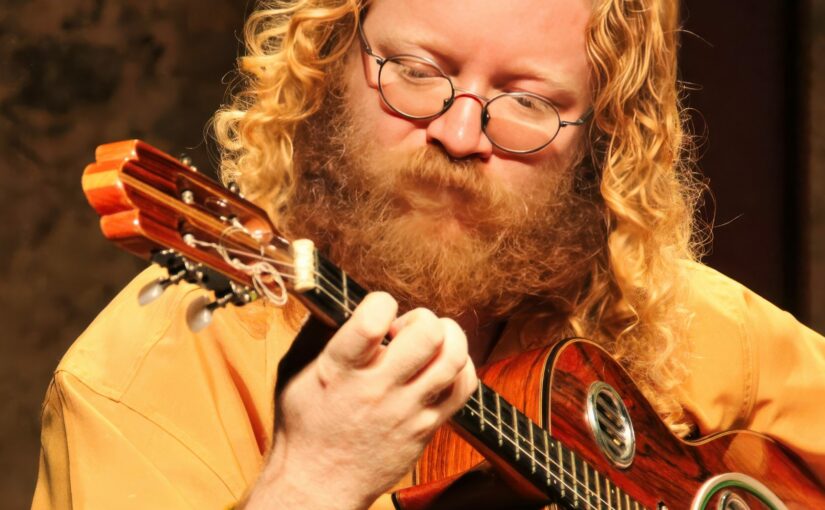APRIL 14 TO 18, 2025
CHORO WORKSHOP / ADVANCED LEVEL
Abel LUIZ, cavaquinho, mandolin, tenor guitar
Rui ALVIM, clarinet
Paulo ARAGÃO, guitar
Naomi KUMAMOTO, flute
Marcos THADEU, pandeiro and percussion
And other guests from the Aix-en-Provence International Choro Festival (names to be announced later)
Claire LUZI and Cristiano NASCIMENTO, educational coordination, translation.
This workshop is part of the Aix-en-Provence International Choro Festival, included in the France-Brazil 2025 Season.
GENERAL CONTENT
Choro: This dazzling music is one of the first to have emerged in Brazil, later giving birth to others like samba and bossa nova.
Its origins trace back to the popular society of Rio de Janeiro in the second half of the 19th century. It has the harmonic and melodic richness of romantic music, blended with African syncopations.
A refined music in its substance, popular in its lively, sparkling, and friendly way of life, voluble and generous, sometimes very sentimental, it remains vibrant in Brazil, where it has many young composers, passionate performers, and listeners.
This workshop is designed specifically for musicians who already have a solid understanding and regular practice of choro, in ensembles and/or choro rodas, and who wish to deepen and refine their skills with great masters.
It will focus on collective practice, mainly approached orally, with pieces proposed by Abel Luiz and the participants. Sheet music will be provided, shared with participants from the “intermediate” group.
The masterclass is structured around three main axes: ensemble practice, which will focus on accompaniment and musical expression; the socio-cultural aspect, discussing the construction of choro as collective memory and the expectations carried by this musical culture; and finally, the workshop will offer space for research and experimentation, both collective and individual, through musical play and sound exchanges that will provide true immersion in the techniques of the choro roda.
The workshop will be structured in modules, some of which will be common to participants enrolled in the “intermediate” level:
- Ensemble practice (sheet music), common to all participants
- Roda practice, spontaneous collective arrangement, hierarchy, and musical etiquette
- Ensemble practice of “regional,” the constructed collective arrangement
- Small group workshops by instruments, led by Casa do Choro teachers: flute, clarinet and winds, mandolin, guitars, cavaquinho, percussion
- Socio-historical contextualization of choro
Every day, a moment of choro roda and informal practice will be offered at different public locations in the city, open to participants as well as all musicians, led by festival artists.
Participants will have privileged access to the evening concerts.
A public performance is planned, integrated into the Festival program.
SCHEDULE
Advanced Level
MONDAY:
10:00 AM – 11:30 AM: Introduction, roda practice led by Abel Luiz
11:30 AM – 1:00 PM: Socio-historical contextualization by Cristiano Nascimento
2:30 PM – 4:30 PM: Ensemble practice (tutti) by Abel Luiz
5:00 PM – 7:00 PM: Public choro roda
TUESDAY:
10:00 AM – 11:30 AM: Small group workshops by instrument, led by Casa do Choro teachers
11:30 AM – 1:00 PM: Roda practice led by Abel Luiz
2:30 PM – 4:30 PM: Ensemble practice (tutti) by Paulo Aragão
5:00 PM – 7:00 PM: Public choro roda
Evening: Concert-lecture by Adriana Facina “Popular Music and African Diaspora in Rio de Janeiro: Choro, Samba, and Funk”
WEDNESDAY:
10:00 AM – 11:30 AM: Roda practice led by Abel Luiz
11:30 AM – 1:00 PM: “Regional” group practice led by Abel Luiz
2:30 PM – 4:30 PM: Ensemble practice (tutti) by Naomi Kumamoto
5:00 PM – 7:00 PM: Public choro roda
Evening: Concert-lecture by Abel Luiz
THURSDAY:
10:00 AM – 11:30 AM: Small group workshops by instrument, led by Casa do Choro teachers
11:30 AM – 1:00 PM: Roda practice led by Abel Luiz
2:30 PM – 4:30 PM: Ensemble practice (tutti) by Paulo Aragão
5:00 PM – 7:00 PM: Public choro roda
Evening: Guitar concert with “Portraits” by Cristiano Nascimento and Wim Welker, followed by a concert by Mauricio Carrilho (subject to confirmation)
FRIDAY:
10:00 AM – 11:30 AM: Roda practice led by Abel Luiz
11:30 AM – 1:00 PM: “Regional” group practice led by Abel Luiz
2:30 PM – 4:30 PM: Ensemble practice (tutti) by Naomi Kumamoto
5:00 PM – 7:00 PM: Public choro roda
Evening: Concert by Abel Luiz
SATURDAY:
3:00 PM: Rehearsal and public performance
5:00 PM – 7:00 PM: Public choro roda
Evening: Concert “Boum mon Boeuf” and “Le bœuf sur le toit”
SUNDAY:
2:00 PM – 6:00 PM: Public choro roda and festival closure
PARTICIPATION REQUIREMENTS
Participants: Musicians who are already advanced in their instrumental practice and can read chord charts and sheet music. All applications will be considered.
Group size: Up to 25 students
Instruments: Guitars, cavaquinho, flute, clarinet, trumpet, trombone, saxophone, mandolin, pandeiro, and small percussion instruments (other instruments to be discussed with the coordinators).
REGISTER NOW
>> ON-LINE REGISTRATION <<
>> RATES AND REGISTRATION PROCEDURE <<
BIOGRAPHY
Born in the Rodas de Choro, led by his grandfather, Abel LUIZ is an essential figure in the music scene as a composer, arranger, musical director, and multi-instrumentalist. Throughout his career, he has performed with artists such as Délcio CARVALHO, Dona Ivone LARA, Almir GUINETO, among many others. He is one of the founders of Samba do Trabalhador, having participated as a musician, arranger, and composer in the project’s first CD and DVD. He is also the musical director of the Loucura Suburbana carnival bloc, pioneering in Brazil and worldwide by combining culture, carnival, territory, and mental health for over 20 years. He is currently part of the Terreiro de Crioulo project, a samba round and cultural market; he plays in the Trio Choro Novo and the Duo Onze Cordas, dedicating himself to various expressions of Brazilian popular, instrumental, and regional music. He strives to integrate music, culture, health, education, and the building of knowledge in a transversal way.
